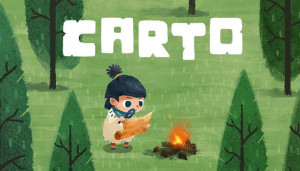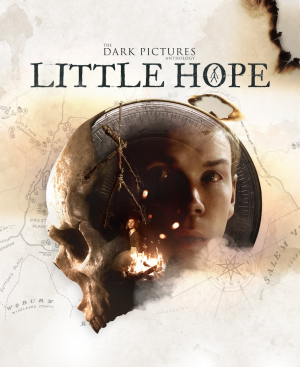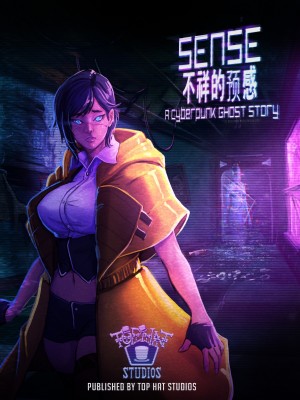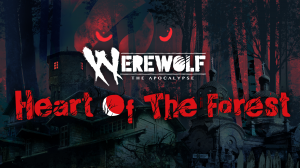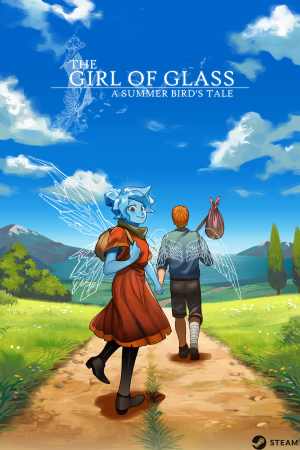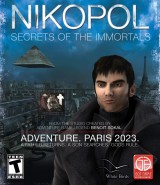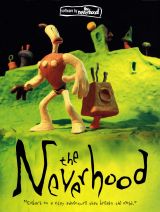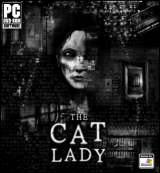Review for Tell Me Why
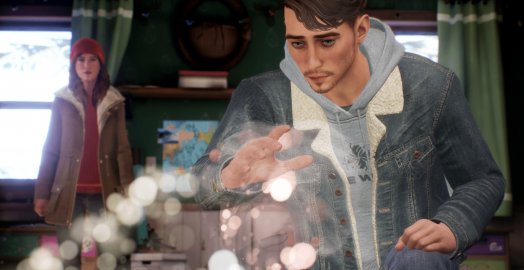
Ever since the release of Life Is Strange in 2015, DONTNOD has become synonymous with the episodic narrative adventure genre, and Tell Me Why continues in this mould while taking it to a new location: the fictional Delos Crossing, Alaska. This story of troubled reunited siblings brings with it the usual production quality we’ve come to expect from the acclaimed French studio, but is more restricted in scope and player agency than its forebears (with only three episodes instead of the usual five). However, in many ways it does more with less. There's more depth to everything, if you look for it, and it tackles some of the most sensitive issues to date. It’s also far more focused on interpersonal relationships, introspection, and the nature of memory. If you value narrative above all else in your games, then this is one not to be missed.
As preteens, fraternal twins Alyson and Tyler are separated following a tragic and traumatic event involving their single mother at their small-town home in the Alaskan woods. With their mother out of their lives, Alyson is adopted by local sheriff Eddy, while Tyler is forced to live in an out-of-town facility due to the horrific events that unfolded. Now ten years later and on the precipice of adulthood, Tyler returns to Delos Crossing so that he and Alyson can prepare their childhood home for sale and finally put their past firmly in the rearview for good.
Anyone familiar with DONTNOD's other games of this kind will be accustomed to the mechanics and gameplay on offer here. There's lots of walking around and examining objects and scenery with the click of a mouse or press of a button, which usually results in one of the characters giving exposition about whatever it is you're looking at. Where Tell Me Why differs from the standard formula, however, is the fact that here you alternate control between both Tyler and Alyson at predetermined times throughout the game’s three episodes (or "chapters" as the game calls them now that all three have been released), each of which takes around two to three hours to complete.
Tell Me Why wouldn't be a DONTNOD game without some supernatural elements, and this time it comes in the form of the protagonists’ special twin bond, manifested as the ability to communicate telepathically with one another and relive old memories in the places where they happened. This seems straightforward, but when Tyler and Alyson both have different ideas and recollections about what exactly occurred ten years prior, it becomes a whole lot more complicated. What starts as a simple job of tidying up the house for sale becomes a quest for answers about what really took place all those years ago. If their memories don't align, they must dredge up the past by seeking answers in a small town that wants to forget – and there are more secrets being concealed than first appears.
There are only a handful of locations available in Tell Me Why, though each scene changes or expands as you visit at different points throughout the story. When you return to the police station, for example, it will have new areas unlocked and other objects scattered throughout, reflecting the ongoing events that apparently continued there in your absence. The twins' house – the focus of the tale and so prominent it could be described as the third protagonist – holds hidden mysteries of its own, as well as new areas waiting to be uncovered as you progress.
Regardless of whom you control, Tyler and Alyson often chat back and forth. Sometimes they’ll come across areas that hold a memory for them, signified by audio cues and a vibration if you’re playing with a controller, as I was. Holding the right trigger and pressing another button then allows the twins to remember what happened there via a kind of ghostly apparition of past events. Most of the time this plays out without issue, but sometimes the twins remember events differently. In these cases, you get to watch both versions of the memory and select which one you think is correct based on the evidence you've found. (Was your mother's friend really that altruistic, or was she manipulating?)
There is definitely no “correct” choice to these options, and that's what most of the game is about: how truth can be subjective according to our personal experience. Even the final major decision is based only on what you think happened, because it deals more with the motives behind what happened, not what actually happened. I definitely felt conflicted with some the harder choices that offered equally plausible scenarios, carefully considering any potential consequences as best I could, though it turns out the only impact your decisions really have is to change how the other twin talks to you in that conversation or small things like that, and there's a Telltale-esque post-screen that says something to the effect of, “Alyson liked that you sided with her.”
Puzzles fall into two camps: object-based and environmental. The former is the simpler of the two, usually just involving searching for one or more items in the nearby vicinity to complete your current objective, such as finding the right component to get a piece of machinery working again or unlock a door. Environmental puzzles are exactly as they sound, like the one that tasks you with fitting the correct fuses in a fuse box to get the right voltage in order to restore power to the house, and another that has you delving through records to research the past for answers. These puzzles are more complex and sometimes require the use of The Book of Goblins, a book that the twins and their mother created in the style of fairy tales but actually contains many allegories about the mysteries of the house. Read a story, work out who and where the characters and places are in the real world, and apply that to solve puzzles and sometimes, quite literally, unlock new areas.
It’s a shame there aren’t more places to actually go, as Tell Me Why renders wintertime Alaska beautifully, making it one of the best-looking DONTNOD titles to date. Waking up in your bedroom and looking out of the window to see cars snaking through the town never gets old, but you’re never given the freedom to actually go explore. Fortunately, the locations that are accessible, from enclosed interiors such as living rooms adorned with paintings and drawings to scenic outdoor snowy vistas, are all brought to life with wonderfully crafted 3D detail. The game hinges on making you want to thoroughly explore its limited environments, soaking it all in slowly, and this is an area in which it excels tremendously.
Much of your exploration will be done in silence, with the occasional tonal ambience adding atmosphere when appropriate and a killer soundtrack of acoustic indie and pop/electronica songs during cinematic moments like major plot reveals and emotional childhood flashbacks, further engaging you in the on-screen drama. Equally impressive is the excellent voice acting, not just from the two siblings but right down to minor characters like the woman in the police station reporting a crime, who is only seen for a couple of minutes in the entire game. It's these little flawless audio touches that help elevate Tell Me Why to the top of the narrative adventure pile.
Which is good, because there's a lot in the way of narrative here, much of it deeply personal. For example, Tyler has embraced his nontraditional sexuality in his time away, which is at odds with the conservative, backwoods nature of Delos Crossing and its inhabitants. This is handled tastefully, and rather than the in-your-face conflicts you might think would arise, the topic is dealt with in a subtle way, with characters who knew Tyler as a child and have grown up in a world locked in time trying to tiptoe awkwardly around a concept so alien to them.
Tell Me Why also calls into question what it means to remember something, and what "truth" actually means. We've all had those disagreements with close friends and family about situations where both parties adamantly believe their version is the "correct" one. This is what this game deals with fantastically by placing the player squarely within just such an experience and forcing them to confront these issues firsthand. And it’s all tied in with the overarching storyline of the twins trying to come to terms with the events that disrupted their lives all those years ago.
What problems exist with the game are due to the very same thing that affords it such depth: a very limited scope. Delos Crossing's isolated, small-town setting with bigoted undercurrents is such an interesting place, but it is underutilised. There are only two restricted locations in town, but you can see the rest of it from afar, begging to be explored. The characters on offer are interesting too, like the sheriff with secrets to hide or the drunkard family friend, but again, there just aren’t enough of them, leaving you feeling like you’re continually talking to the same few people.
But don’t let its small size fool you, as Tell Me Why is more than the sum of its parts. Although smaller in scope than its brethren, its examination of the human condition is one that is sure to stick with you, making you ponder it well after you leave the twins' tragic story behind. The nature of memory, bigotry, sexuality, appearance and reality, and the ability to let go are all put under the microscope in a thoughtful, nuanced way. If you have a penchant for narrative adventures that make you think, then this game should be near the top of your to-play list. The more you demand of it beyond that, the less you will get out of your time with Tell Me Why. With that caveat, it’s still worth playing if just for the well-told experience of walking a mile in another's shoes, which in turn might make you realise that those annoying loved ones aren’t the (only) ones whose views are biased or at least incomplete.
Our Verdict:
What it lacks in its limited characters and locations, Tell Me Why makes up with a personal, intimate narrative that nicely captures the essence of everyday life and offers a much-needed examination of the human condition, all wrapped in a beautiful presentation in true DONTNOD style.



_capsule_fog__medium.png)
__large.jpg)

__large.jpg)


__medium.jpg)
